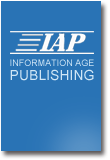
Exploring the Role of the Educational Leadership Program Coordinator
Practice, Problems and Possibilities
Edited by:
Noelle A. Paufler, Clemson University
Ellen H. Reames, Auburn University
A volume in the series: Dimensions of Leadership and Institutional Success: Exploring Connections and Partnerships. Editor(s): Ellen H. Reames, Auburn University.
Call for Papers or Manuscripts
There is some evidence that the program coordinator (PC) provides leadership for their higher education leadership preparation programs, but little is known about how this role translates within the university setting. Furthermore, we know very little about the role of the PC’s work to bridge the gaps between the higher education leadership preparation program and K-12 school districts’ needs. Another area with little or no knowledge involves the PC’s role in partnership development with K-12 districts and outside state and national educational agencies. Furthermore, there are no examples of conceptual frameworks of how the educational leadership PC operates or develops relationships within the higher education context. The editors seek research-based manuscripts which address how the educational leadership PC supports their program within the university community and how they interact and develop relationships with K-12 districts and other educational agencies. The chapters should include information about factors that foster and hinder the PC as they navigate within and outside the university community. Editors are also interested in chapters which focus on the role of the PC in partnership development to include examples of partnerships facilitated by the PC.Topics of interest include:
• Role and function of the educational leadership PC
• The PC as a leader in partnership development
• The PC as a navigator of higher education and K-12 policy and politics
• PC conceptual frameworks
Proposals should be made on one single-spaced page, and consist of your name and affiliation, email address, a tentative title, and an abstract (200-250 words). Please include an additional page with a brief biography (200-300 words) and relevant professional publications. All proposals should be sent as a single Word file of 2 pages to Noelle A. Paufler at npaufle@clemson.edu and Ellen H. Reames at reamseh@auburn.edu no later than April 30, 2022.
Authors of accepted proposals will be notified by April 30, 2022 about the status of their submission and sent chapter guidelines. Full chapters, ranging from 7,000 to 8,000 words in Times New Roman 12, double spaced text, inclusive of title, abstract, manuscript, and references, should be submitted as a Microsoft Word email attachment by September 1, 2022. Manuscripts should conform to 7th edition APA style conventions. See Author Guidelines. Graphics and images may be included.
TENTATIVE SCHEDULE FOR PUBLICATION:
Abstract Submissions: April 30, 2022
Notification of invite to submit chapter: April 30, 2022
Submission of book chapter: September 1, 2022
Reviews of book chapter manuscripts sent to author(s): January 15, 2023
Receipt by editors of final draft of book chapters: May 30, 2023
Final book submitted to publisher: July 30, 2023
Anticipated publication: Fall, 2023
Send Inquiries to: Noelle A. Paufler at npaufle@clemson.edu and Ellen H. Reames at reamseh@auburn.edu
BUY ONLINE
- This title is in development and is not yet available to order online. Please call the IAP office for more information: 704.752.9125

CATEGORIES
CLASSIFICATION
RELATED TITLES
-
 Creating School Partnerships that Work
A Guide for Practice and Research
Creating School Partnerships that Work
A Guide for Practice and Research
-
 Navigating the Ubiquitous, Misunderstood, and Evolving Role of the Educational Leadership Program Coordinator in Higher Education
Navigating the Ubiquitous, Misunderstood, and Evolving Role of the Educational Leadership Program Coordinator in Higher Education
-
 Partnerships for Leadership Preparation and Development
Facilitators, Barriers and Models for Change
Partnerships for Leadership Preparation and Development
Facilitators, Barriers and Models for Change
-
 Rural Turnaround Leadership Development
The Power of Partnerships
Rural Turnaround Leadership Development
The Power of Partnerships
